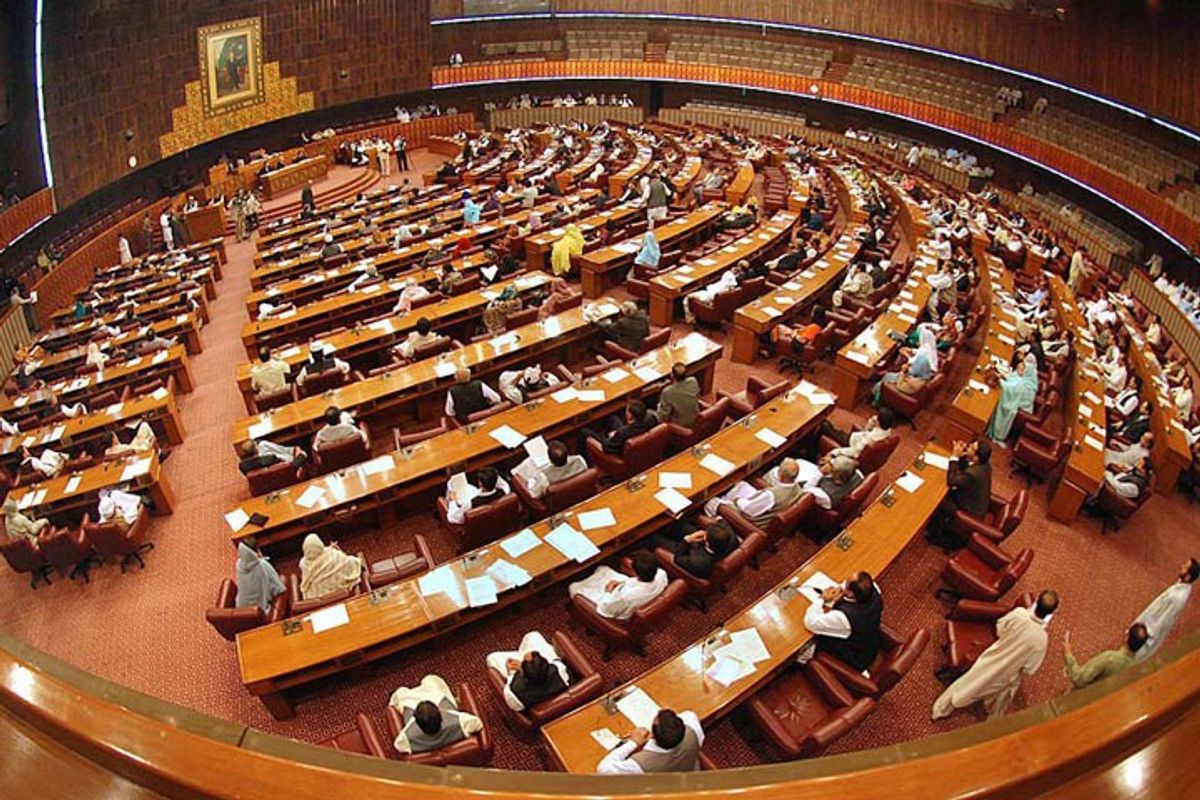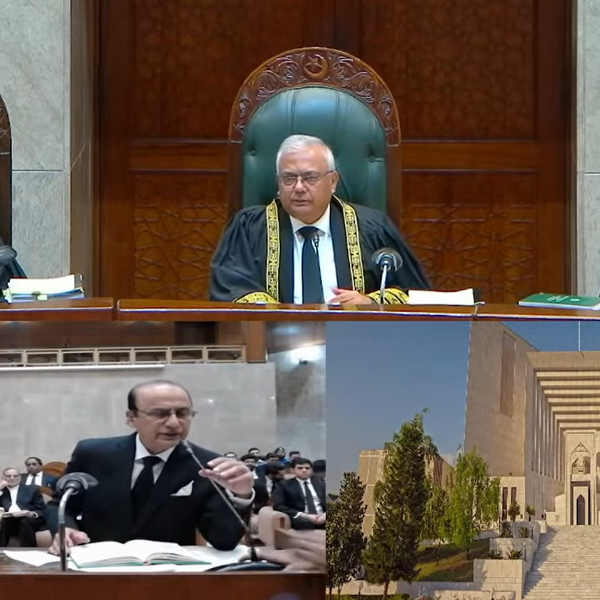Opposition, including JUI-F, storms out of Pakistan's parliament over fast-tracked bills
Civil Courts Amendment Bill sparked fierce debate over shifting judicial powers from high courts to district judges

Javed Hussain
Correspondent
I have almost 20 years of experience in print, radio, and TV media. I started my career with "Daily Jang" after which I got the opportunity to work in FM 103, Radio Pakistan, News One, Ab Tak News, Dawn News TV, Dunya News, 92 News and regional channels Rohi TV, Apna Channel and Sach TV where I worked and gained experience in different areas of all three mediums. My journey from reporting to news anchor in these organisations was excellent. Now, I am working as a correspondent with Nukta in Islamabad, where I get the opportunity of in-depth journalism and storytelling while I am now covering parliamentary affairs, politics, and technology.

APP/File
Opposition challenged quorum three times, with final count forcing session adjournment after exodus
New legislation requires senior bureaucrats to publicly declare domestic and foreign assets
Multiple anti-trafficking bills passed before disruption, increasing penalties for human smuggling
A session of Pakistan's lower house of parliament, National Assembly, ended abruptly Monday after opposition parties, including former government legislation partner Jamiat Ulema-e-Islam-Fazl (JUI-F), staged a joint walkout amid heated debates over new legislation.
The unified opposition walkout marks a significant shift, as JUI-F had previously supported the government on key bills such as the 26th constitutional amendment. The session, chaired by Speaker Sardar Ayaz Sadiq, collapsed when quorum could not be maintained following the opposition's departure.
"What kind of legislation is being made in parliament where there is noise while legislation is being passed? The opposition should be heard with an open heart. It has been a year, the anxiety in this house has not ended, and the opposition's point of view is not being heard," JUI-F chief Maulana Fazlur Rehman declared during the heated session.
The opposition initially challenged quorum twice. Pakistan Tehreek-e-Insaf member Jamshed Dasti first raised the issue during question hour, while PTI member Yousaf Khan pointed it out during the legislative phase. Both counts confirmed sufficient attendance.
Opposition leaders then mounted a coordinated effort to halt what they described as hasty passage of significant legislation without proper consultation. During Law Minister Azam Nazir Tarar's response to JUI-F leader Maulana Fazlur Rehman, opposition members including the opposition leader walked out. PTI's Aslam Ghuman then pointed out quorum, prompting JUI-F members to also exit the chamber. The subsequent count revealed insufficient attendance, forcing the session's adjournment.
Multiple bills fast-tracked
"Policies regarding national integrity are not being formulated in parliament or government chambers but in closed rooms, creating policies that go beyond the Constitution and law. At present, there is no civilian authority in the country," Rehman asserted, challenging the legitimacy of the legislative process.
A key point of contention was the Civil Courts Amendment Bill 2024, which would allow district judges to hear appeals against session judges' decisions, a role traditionally reserved for high court judges. Opposition members protested vocally during its passage, with Tarar responding that "the opposition members are making noise, the nation should see".
Prior to the disruption, the assembly had passed several trafficking-related bills by majority vote, including the Prevention of Trafficking in Persons Amendment Act 2025 aimed at restricting international begging rings. The Pakistan Coast Guard Amendment Bill 2024, Prevention of Human Trafficking Amendment Bill 2025, and Prevention of Smuggling of Migrants Amendment Bill 2025 were also approved.
"We are making laws... the crackdown is ongoing," Tarar said, noting increased punishments and fines while urging opposition awareness that "funerals have been held from people's homes."
Bureaucrats above BPS 16 to declare assets
“Our economy has been handed over to international organizations... IMF delegations arrive daily... now the IMF meets the Chief Justice. Today, it is meeting the Supreme Court Bar... what does the IMF have to do with the judiciary?” questioned Fazlur Rehman, as the government introduced the Civil Servants (Amendment) Bill, 2025, reportedly at the IMF’s behest.
The bill, referred to committee, would amend the Government Servants (Conduct) Rules, 1964 (Rules 12, 13 and 13-A) to align with the Right to Information Act of 2017. The legislation requires digital filing of asset declarations for officials in grades 17-22, including domestic and foreign assets owned by them or family members.
These declarations would be publicly accessible through the Federal Board of Revenue, with privacy safeguards for personal data such as ID numbers, residential addresses, and bank account or bond numbers. The proposal equips the Establishment Division with "a robust framework, resources and tools" for risk-based verification.











Comments
See what people are discussing